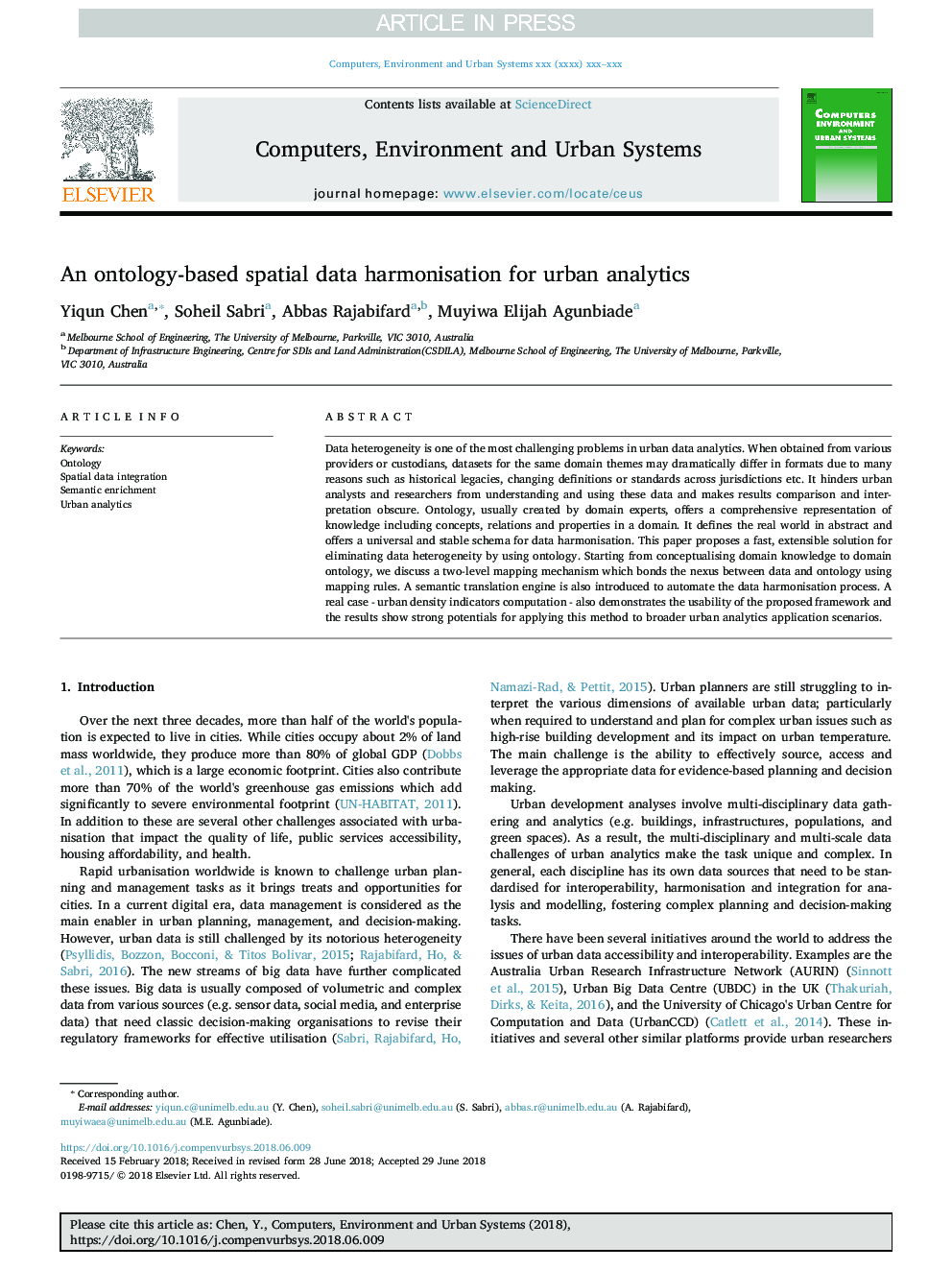| Article ID | Journal | Published Year | Pages | File Type |
|---|---|---|---|---|
| 10151477 | Computers, Environment and Urban Systems | 2018 | 14 Pages |
Abstract
Data heterogeneity is one of the most challenging problems in urban data analytics. When obtained from various providers or custodians, datasets for the same domain themes may dramatically differ in formats due to many reasons such as historical legacies, changing definitions or standards across jurisdictions etc. It hinders urban analysts and researchers from understanding and using these data and makes results comparison and interpretation obscure. Ontology, usually created by domain experts, offers a comprehensive representation of knowledge including concepts, relations and properties in a domain. It defines the real world in abstract and offers a universal and stable schema for data harmonisation. This paper proposes a fast, extensible solution for eliminating data heterogeneity by using ontology. Starting from conceptualising domain knowledge to domain ontology, we discuss a two-level mapping mechanism which bonds the nexus between data and ontology using mapping rules. A semantic translation engine is also introduced to automate the data harmonisation process. A real case - urban density indicators computation - also demonstrates the usability of the proposed framework and the results show strong potentials for applying this method to broader urban analytics application scenarios.
Related Topics
Physical Sciences and Engineering
Computer Science
Computer Science Applications
Authors
Yiqun Chen, Soheil Sabri, Abbas Rajabifard, Muyiwa Elijah Agunbiade,
